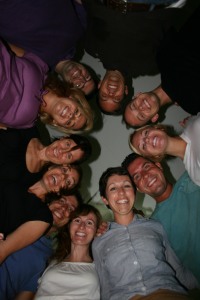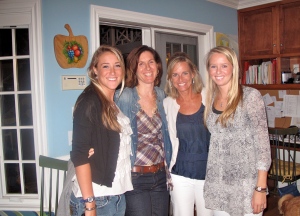
Do you ever experience situations cropping up that you just don’t want to deal with? Situations that feel overwhelming and too much to handle? I would guess everyone knows what I mean because periodically having to deal with difficult situations is a part of being human. But that doesn’t mean we enjoy the process. Is there a better way of getting through these difficult situations? A way that feels positive, empowering, and life-giving, instead of impossible, awful and soul sucking? Yes there is, and it is possible to thrive in difficult situations, not just survive them.
The first step to thriving in challenging circumstances is to listen to the messages your body is telling you about this issue, to ask internally what your body expects, or fears, will occur. As stated in earlier blogs, human bodies use the language of sensations and emotions to communicate to the mind/brain, what is being experienced. So bring to mind that phone call, meeting, or that upcoming confrontation, and see what your body “says” about it. Ask the question about what your body fears with true, open curiosity. In response, you may (hear) feel sensations of heaviness and dread, or a shaky, quivery anxiety, or some confusion and collapse.
After asking your body what it expects, if the sensations are those of fear and dread, try identifying the location in your body where those sensations are the strongest. Discover the fear “zip code” if you will. Ask that place what it is specifically afraid will happen, or how you could be harmed? Sometimes you will hear a realistic fear, such as, “she will be mad at me”, or, “I will have to find another place to live”. But often, in current situations, our deep sensations of dread and fear are connected to earlier ages and experiences, times when we had less power and less ability to stand up for ourselves or to clearly state our needs. So if your body answers with a fear that sounds irrational, then you may be dealing with an earlier time and body state. In that case bringing in some form of support would be advised and helpful. Often we didn’t get enough support early in our lives, and adding it now makes a difference.
Sometimes, simply saying the irrational fear aloud helps us calm down because we can perceive that what we fear most likely will not occur. But if saying it aloud does not dispel the fear, try talking back to the fear gently and compassionately. Tell the fear what positive things you will do to make the situation better. Let your body know what it can realistically expect and how you will move forward even in the challenge. This may sound odd, but the body is a sentient being that does not feel or understand the same things that the mind does.
Just paying attention to the sensations that feel negative (they are not negative) allows most people to move through the feelings and to calm down. Paying attention with compassion will cause them to dissipate. When our Autonomic Nervous System ANS Video is in high Sympathetic charge mode, our bodies are full of fearful sensations and soaked in stress hormones. At that point our Neo-cortex can go off-line and we are left swimming in a sea of survival soup and have little rational ability left. Once the sensations related to fear, confusion, and disempowerment dissipate or are reduced and the Sympathetic charge lessens, your rational mind, the Neo-cortex, will come back on-line and help you to figure out the wisest course of action to take in this difficult circumstance.
Another aspect that makes a big difference in how we navigate challenging situations is our attitude toward the difficult circumstance. When we are full of fearful sensations and our ANS is full of Sympathetic arousal, our attitude is usually a negative one. We think things like, ‘its not fair, why is this happening to me, or everything is against me, I can’t catch a break’, etc. But when we calm our body down and connect body, heart, and mind in unity to deal with the problem, we are able to perceive a more realistic and more positive view of the situation. With a positive attitude we can think things like, ‘this will help me grow stronger, it can help me be more forgiving’, etc. We have known for years that hardship has great potential to help a person grow in maturity and wisdom. Although, It can also make people bitter. It depends on that person’s focus.
So the next time you face a difficult circumstance, try these tips. See how integrating your body, mind and heart makes for greater empowerment and a more resilient you in the midst of a difficult challenge.
Going Deeper:
1.) What is your Achilles heel? Are there certain situations that are just really hard for you to handle? What kind of support do you have, or bring in when things feel Sucky?
2.) Do you know your own body’s messages? Do you know what happens inside you when things feel safe? What sensations does your body produce when life gets challenging? If you usually only listen to your mind, trying adding hearing the body message, the more info you have the better you can navigate challenges.






